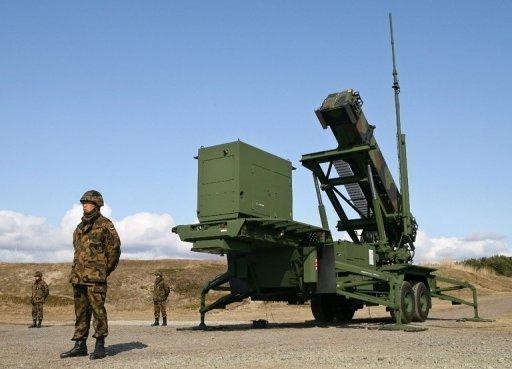
North Korea has been put under more severe sanctions by the Security Council yesterday. The North Korean regime has emerged as threat to the peace in the area surrounding it. There is another aspect of this threat which has come in form of increased weaponisation and psychology of fear and threat in several countries. Japan is among those which has increased its draft defense budget to ¥5.19 trillion for year 2018 from ¥5.13 trillion of 2017 after a cabinet decision. The budget has been mainly aimed to purchase the missile defense system in order to protect from the North Korean attacks, thus providing more protection to Japan.
The major investment of Japan is in the purchase of two Aegis Ashore interceptor from USA which will provide extra security from attacks to all islands of the country. Japan believes that threat from North Korean side has increased and there is need of a permanent defense system to watch and repel the attack from North Korean side. Though it already has Maritime Self-Defense Force with Aegis but this purchase will strengthen its security in more intensive manner. Japan has also decided to purchase long-range cruise missiles from a Norway based company to enhance its Maritime defense system capability and protection.
These developments bring into focus as how the global politics is on run. Japan, since the coming of power in 2012 by PM Shinzo Abe, has taken more realistic assessment of the situation; decided to go for more strength ful in the military empowerment. Since 2012 the defense budget is continuously on increase. The threat perception of Japan is different from South Korea. Japan thinks that North Korea will treat it as a soft object hence it is more feared from the side of North Korea. Its foreign policy in the recent time has taken North Korea as a bigger threat than China.
Recently Japan and US in November had undertaken a bilateral annual joint naval exercise around Okinawa in order to deal with the North Korean threat. Japan’s recent focus is on North Korea a little shift from China.
US have been benefitted from this development. Its richness in economy is much dependent upon arms sale. The major reason of its richness is located in the arms industry and its ever increasing sale to the countries spreading from Middle East to Japan. Victor Kiernan in his book ‘America: From White Settlement to World Hegemony’ (2015) writes that ‘during second world war its base was prepared. The arms industry grew accustomed to incalculable profits during the World War, and it has been able to convince the public that its activity is necessary to the economy as well as to defence. Long pre-war years of depression left both employers and workers half-consciously persuaded that the precarious capitalist heaven could only be propped up by endless expenditure on arms.’ During cold war this expanded except some efforts by Carter After the cold war George Bush Sr. and Bill Clinton went for arms sale. Barrack Obama took it to higher heights. Though he was awarded Noble Prize for the Peace.
New President Donald Trump is arms sale focused President who is keen to expand it. Relations with Saudi Arabia and Japan have given him more chances to initiate vigorous arms sales. When he went to Saudi Arabia, arms sale worth $110 billion was decided. During recent visit to Asia, President Donald Trump emphasized Japan, Vietnam to go for arms purchase from US.
The logic is clear that any threat emanating from any side-from China or North Korea is an opportunity to US for selling its advanced arms weapons.
Nation states waste huge financial resources in the purchase of arms and most of these arms turn obsolete with the passage of time. Thus arms are a sort consumer goods. Thereafter a new opportunity becomes available to arms manufactures like USA to sale its arms thereby earn huge profit as well create the employment in the country. This is paradox of the modern global politics where peace is talked about but militarization is practiced.
This is dilemma of the world that since emergence of concept of nation state after the Westphalia Treaty in 1648 have brought lethality in the global interaction. As long as sanity is not percolated among these actors of the global system till then countries like Japan will go on becoming militaristic and nations like US will keep on increasing their wealth.
Japan‘s emergence in the military field is now only matter of time. Its increased defence budget needs not to be criticized but seen as the realities of the world politics and its impact on the wealth distribution in the world, making some rich and some poor nation states. This is not exclusive to Japan it is true for every country which is purchasing weapons and for the country which is selling these.
Dr. Vivek Kumar Srivastava, Assistant Professor CSJM Kanpur University (affiliated college),e mail: [email protected]











































